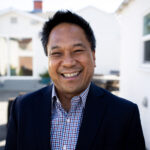
Incorporating Strengths-Based Practice into Your Neighborhoods, Communities, and Agencies
Incorporating Strengths-Based Practice into Your Neighborhoods, Communities, and Agencies
Information
Date & Time
-
-
Learning Objectives
Participants will be able to:
-
Describe three quality of life issues in their communities that negatively impact wellbeing.
-
Identify and compare two consequences of being active in one’s community and two consequences of being inactive in one’s community.
-
Identify two or more influential community stakeholders, institutions, and individuals within their community/ community of interest.
-
Discuss two or more professional relationship-building skills that can be used to engage community stakeholders, institutions, and individuals in one’s community.
-
Create a plan to develop a relationship with at least one community influencer, stakeholder, or representative of a community institution.
Educational Goal
The educational goal of this workshop is to improve behavioral health professionals’ ability to incorporate macro practice into their neighborhoods, communities, and agencies.
Description
According to the Centers for Disease Control, “Health is influenced by many factors. The conditions and social context in which persons live can explain, in part, why certain populations in the United States are healthier than others and why some are not as healthy as they could be.” Behavioral health professionals work with clients whose health and mental health are severely impacted by conditions and social contexts that are characterized by high rates of unemployment, poor public education, lack of affordable housing, high rates of crime and pollution, and lack of access to public parks, reliable public transportation, and fresh food. If we are not part of the solution to improve community conditions, are we part of the problem?
In this workshop, Dr. Victor Manalo will introduce workshop participants to a framework that builds on the strengths of behavioral health professionals to build relationships within communities to promote changes in community conditions and social context that promote healthier communities, such as safe biking and walking routes, quality recreational opportunities and parks, access to mental health services, fresh food, educational and work opportunities, and public transportation and more. Participants will develop their unique strategic plan on how to begin to develop these relationships and build their
influence in their communities
Target Audience
- Addiction Professional
- Counselor
- Marriage & Family Therapist
- Psychologist
- Social Worker
Presenters

Dr. Victor Manalo is the President of the Board of Directors of the National Association of Social Workers, California Chapter (NASW-CA) and Chair of the NASW Council of Chapter Presidents. He is a retired university professor, former city councilman, mayor, and local government consultant. He earned a Ph.D. in Social Work from the University of Southern California and a Master’s Degree in Social Work from California State University, Long Beach.
For nearly 12 years, he served on the Artesia City Council and was active as President of the California Contract Cities Association, Regional Council Member of the Southern California Association of Governments, and Policy Board Member of the South East Los Angeles County Workforce Development Board (SELACO WDB). He is the Chair of the Planning Commission for the City of Artesia and a member of the board of directors of AFS Long Beach.
In the School of Social Work, Victor teaches graduate and undergraduate policy, political practice, and community organizing at California State University, Los Angeles. As a local government consultant, he works with cities to engage their constituents and stakeholders on various issues, from redistricting and pedestrian safety to community capacity-building and sustainable asphalt solutions.